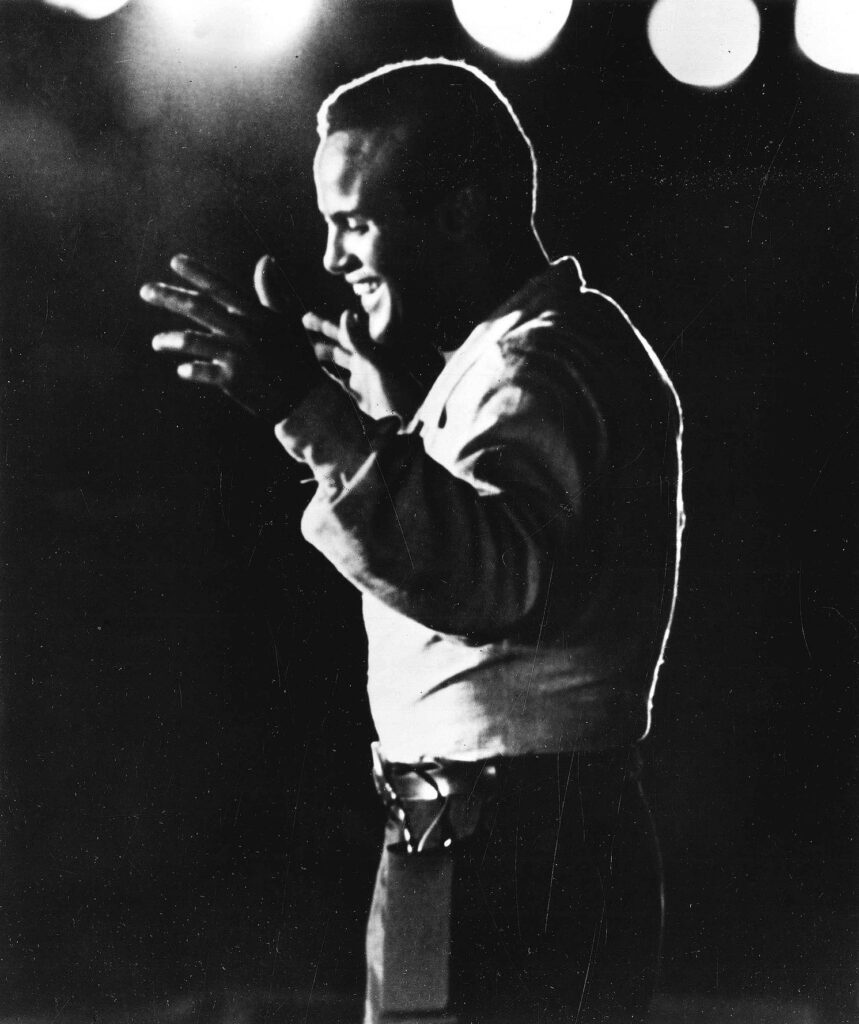Harry Belafonte: An artist committed to human rights
[ad_1]

Harry Belafonte BANNER PHOTO
We lost much on April 25, 2023. Harry Belafonte was more than a world-class performer, winning multiple music awards. He was also a world-class human being like few others right from the start. His first album, “Calypso,” in 1956 was the first million-selling LP by a single artist. Straight out of the gate, his conscience, humanity and activism shined through. Always his authentic self, Belafonte didn’t wait for fame to advocate for what he believed.
In a PBS “American Masters” interview he said that the “Banana Boat Song’s” lyrics like “Day-o, day-o, daylight come and we want go home, work all night on a drink of rum,” spoke to the harsh realities of West Indian life.
“It was a classic work song that was about the struggles of a people who were underpaid, who were the victims of colonialism, and the song talked about our aspirations for a better way of life,” he said. “It’s central to the song.”
As Belafonte’s career progressed, he used his fame and fortune to work as hard as he could to make his community, and our world, a better place. He starred in many barrier-breaking movies, and on television in the late 1950s challenged white Americans’ view of Black Americans by presenting one of the first opportunities to see a Black artist on the small screen. Belafonte was part of the first interracial couple to appear in a blockbuster movie.
The actor and singer was not content to stop there. He put his career, reputation and life on the line by standing with Martin Luther King Jr. He also helped finance the fight for freedom and provided for King’s family. During the 1963 campaign in Birmingham, Belafonte bailed out King and helped raise funds to release other civil rights protesters, rallying other stars to stand up and fight the societal injustices. In 1964, he bankrolled the Mississippi Freedom Summer organized by the Student Nonviolent Coordinating committee, flying with Sidney Poitier to Mississippi and bringing $60,000. He followed up this fight by joining the battle against apartheid in South Africa.
Belafonte’s kind of selfless leadership and yes, sacrifice, is seldom seen among the star entertainers today. We all know about football player Colin Kaepernick’s kneeling in protest to shine a light on the Black victims of police violence and how that simple act cost him his career. Actor Danny Glover is one of the few other examples of celebrities taking a stand to fight for justice, whose activism stretches from these shores to other parts of the world. There are many worthy causes star entertainers could join: a women’s right to choose, voting rights, police reform, criminal justice reform and economic empowerment, to name just a few.
During the George Floyd protests in 2020, many entertainers came out to call for a stop to police violence. During that time there was a large groundswell of activism that we hadn’t seen in years, but it now seems the outrage has faded and those entertainers are nowhere to be seen.
Harry Belafonte called Paul Robeson his first great formative influence. So who has been influenced by Harry Belafonte? Perhaps the one who has taken up the mantle is here right under our noses. He is one of the few recipients of an EGOT, an acronym for a winner of all four major America performing arts awards: an Emmy, Grammy, Oscar and Tony. John Legend is a contemporary musician who received an EGOT and is in his own way a social activist. He has been an outspoken critic of racism and the criminal justice system and an advocate for prison reform. He has condemned the 13th Amendment’s continuation of the system of slave labor in prisons and spoken about the need to get past America’s original sin of slavery.
In 2007, Legend started the “Show Me Campaign” to give every child access to a quality education as well as address systemic issues in the criminal justice system. In 2021, he kicked off the HUMANLEVEL initiative to uplift communities disproportionately impacted by institutional racism. He has also been the executive producer of such films as “Loudmouth,” a documentary about Rev. Al Sharpton; “Citizen Ashe” about tennis great Arthur Ashe; “The Legend of the Underground,” a documentary exposing the rampant discrimination against gays in Nigeria; and “The Black Church: This Is Our Story, This Is Our Song.” Although mainstream media do not cover the work of this remarkable man, John Legend is hard at work behind the scenes dedicating his life to make the world a better place, much like Harry Belafonte did.
[ad_2]
Source: News

